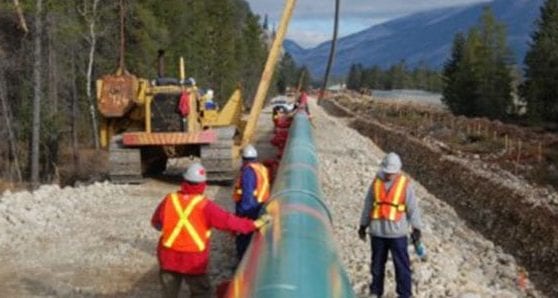The election of a Liberal minority in Monday night’s federal election is fueling a number of questions now in the energy sector and for Canada’s economy.
What will this mean for the oilpatch? What will it mean for potential pipeline expansion? What about the economy?
“The biggest question mark with this election outcome is for the energy sector, and specifically the fate of the Trans Mountain Pipeline, but the result is likely a net negative,” said Douglas Porter, Chief Economist, BMO Financial Group. “The NDP have opposed the pipeline, but to a lesser extent than the BQ or the Green Party.
“Still, it’s worth noting that between the Liberals and Conservatives, a strong majority of MPs will be in support of the project, and recall that it has already been approved – so doesn’t necessarily face a confidence vote in the House. Whether or not the Liberals can finesse the project forward; or, if it is a hard no from the NDP, remains to be seen. More broadly, the NDP are in-line with the Liberals on their broader climate change and carbon tax plan. But, the NDP may seek to reduce tax breaks in the sector.”
In a statement, the Canadian Energy Pipeline Association said it is looking forward to working with the federal government, and all parties, on issues relating to the transmission pipeline industry.
“A healthy and competitive pipeline industry benefits all Canadians through the thousands of jobs and billions of dollars generated for vital services like health care and education. We will continue to advocate on behalf of our members on key issues such as gaining better access to existing and new markets and ensuring Canada can compete with other countries for the investment dollars needed to develop and transport our natural resources in the safest, most responsible way,” said the association.
Tim McMillan, president and CEO, of the Canadian Association of Petroleum Producers, said the election of a minority government reflects the diversity of Canadians and the need to work constructively together to achieve our mutual goals.
“We all agree on the importance of making life affordable for Canadians, enabling results on climate change, and creating prosperity for all,” he said. “CAPP is committed to working with the federal government. A strong oil and natural gas industry can contribute to the government’s mandate and benefit all Canadians by providing affordable energy, prosperity, and creating opportunities for Indigenous communities.”
Brian DePratto, Senior Economist with TD Economics, said that with minority governments come higher uncertainty around policy and the length of time a government can remain in office.
“Going forward, some market volatility may be expected around pivotal votes of confidence, notably budgets, and it remains to be seen how markets will digest a potential further widening of budget deficits and/or tax increases stemming from compromises and agreements around pharmacare or other spending measures,” he said. “That said, the federal debt level is low, as are borrowing costs, and this is hardly Canada’s first minority government – absent major tax increases, expect any reactions to be short lived.
“If there is an area of longer-term focus for markets, it will (be) on the energy sector, and notably over the future of the TransMountain (TMX) pipeline. Even though the Liberal government remains fully committed to TMX, there will be a degree of angst in the oilpatch that the project could be used as a bargaining chip in future negotiations with another party.”
The views, opinions and positions expressed by columnists and contributors are the author’s alone. They do not inherently or expressly reflect the views, opinions and/or positions of our publication.



